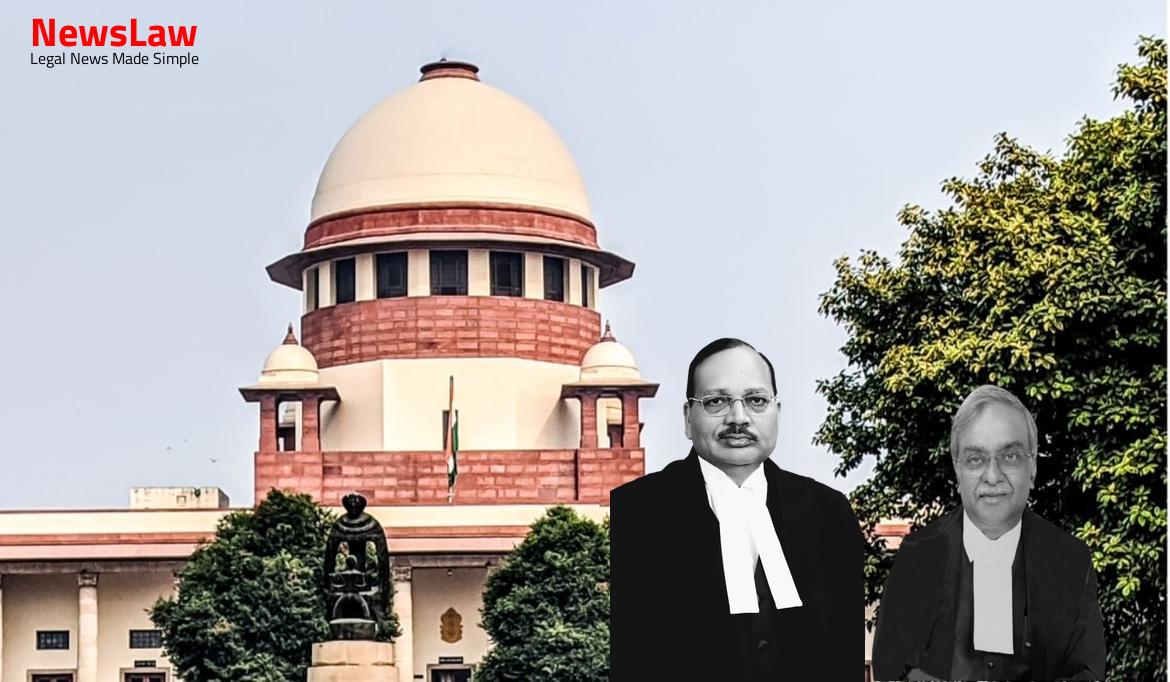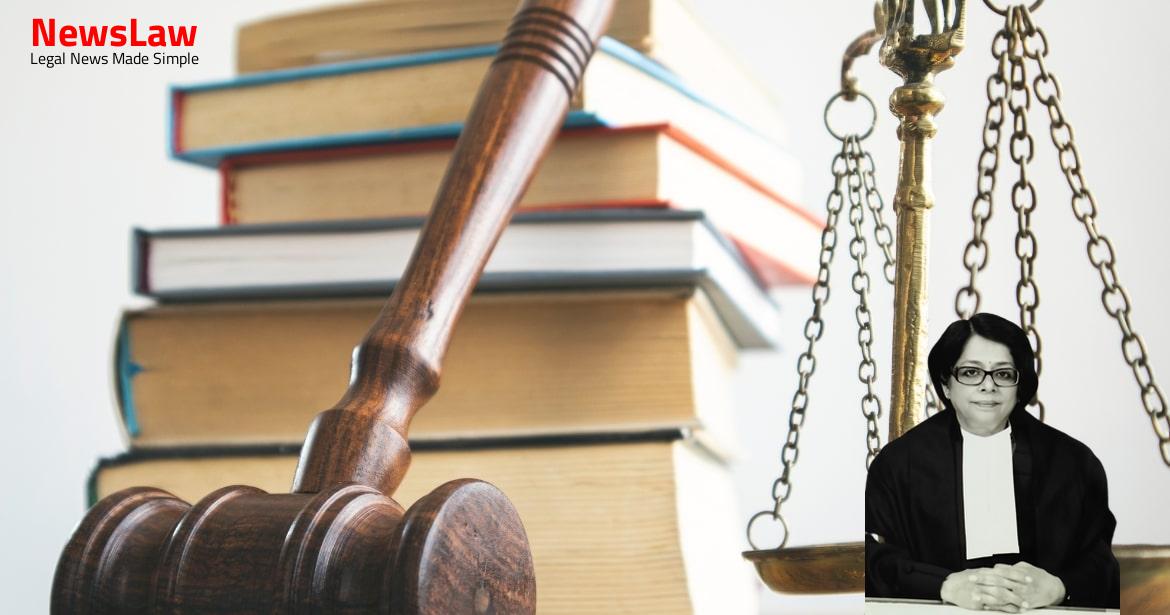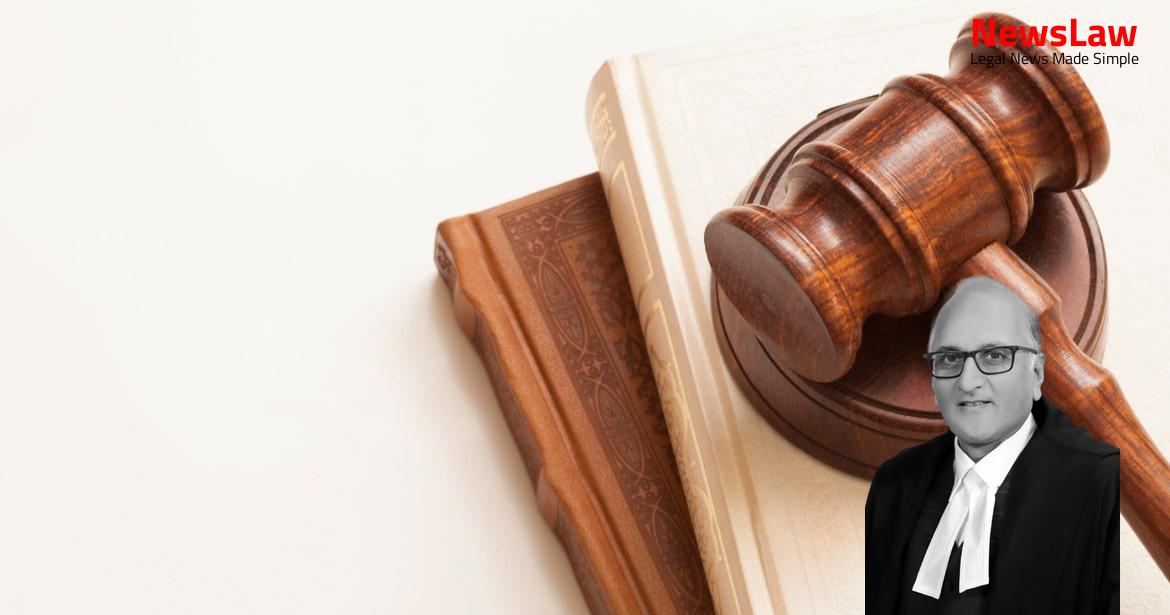In a recent landmark judgement, the Supreme Court of India has settled a pay disparity dispute between the parties involved. The case addressed the issue of unequal pay scales and the application of Rule 21 in the context of Career Advancement Scheme promotions. Stay tuned to learn more about how the Supreme Court resolved this long-standing legal dispute.
Facts
- Original Petitioners are seeking the same pay as 85 Assistant Professors by counting their earlier ad hoc services.
- Single Judge observed that original Petitioners did not challenge certain Government Resolutions and office orders but granted stepping up of pay when there is an anomaly.
- State appealed against Single Judge’s order in Letters Patent Appeals before Division Bench.
- Division Bench allowed the appeals by the State and set aside Single Judge’s order, directing stepping up of pay for original Petitioners.
- Single Judge held Rule 21 applicable in the case, granting stepping up of pay based on Career Advancement Scheme promotion and anomaly in pay scale.
- Division Bench held Rule 21 not applicable as anomaly not direct result of Rule 21, considering Senior Scale and Selection Grade as promotion.
- Original Petitioners argued for pay at par with Assistant Professors who had ad hoc services, which the Division Bench found as illegal.
- Division Bench noted that original Petitioners did not serve as ad hoc lecturers unlike the 85 Assistant Professors, thus granting them the benefit would be illegal.
- Ad hoc lecturers appointed as regular Assistant Professors in 2001 sought relief regarding counting ad hoc services for senior scale/selection grade.
- A petition was filed in the High Court to resolve the issue of pay disparity between ad hoc lecturers and direct appointees selected by GPSC.
- Government Resolution in 2017 clarified that Career Advancement Scheme is not related to promotion.
- UGC Regulations of 1998 set criteria for eligibility to move to Senior Scale and Selection Grade for lecturers.
- Services during ad hoc period could be counted for grant of Senior Scale and Selection Grade pay.
- Government Resolutions in 1999 and 2011 allowed for considering previous services of ad hoc lecturers for placement.
- However, in a Special Civil Application, benefits were not extended for seniority purposes.
- Government Resolution in 2014 mandated counting previous services of ad hoc lecturers for Senior Scale/Selection Grade benefits.
- An order in 2015 granted Senior Scale and Selection Grade benefits to 85 eligible Assistant Professors based on their previous ad hoc services.
- Representations were made in 2015 by direct appointees for their ad hoc services to be counted for different recruitments/promotions.
- Controversy stemmed from ad hoc engagements of lecturers in the period of 1984-95.
- State Government rejected claims for counting ad hoc services for senior scale/selection grade in 2008, citing lack of permission from GPSC during initial appointments.
- Assistant Professors selected directly were granted senior scale/selection grade benefits in 2009.
- UGC Regulations of 2010 treated Career Advancement Scheme as a form of promotion in 2010.
Also Read: Land Dispute Resolution: Specific Performance Decree for Plaintiffs in Ranchi Property Case
Issue
- Appellants are questioning whether the principle of stepping up of pay is applicable in their case.
- The issue revolves around the disparity in pay scales between the appellants and Assistant Professors who were initially ad hoc lecturers and then regularized.
- Specifically, the question is whether the appellants, who were appointed after the Assistant Professors, should receive higher pay based on the principle of stepping up of pay.
Also Read: Matter of M/S. SS. Infrastructure: Landmark Judgment by the Supreme Court of India
Arguments
- Appellants argued that the provisions of Rule 21 are applicable in the present case due to various factors such as belonging to the same cadre, identical time-scale of pay for lower and higher posts.
- They pointed out that the State Government considers Career Advancement Scheme as a form of promotion, as per UGC guidelines.
- It was also mentioned that the change from ad hoc to regular employees should not be treated as a break in service for calculating total length of service.
- Appellants cited judgments like Union of India v. C.R. Madhava Murthy & Anr. to support their argument for pay parity with junior members of the cadre.
- They emphasized that if juniors receive higher pay than seniors with no promotional avenues, it would undermine the purpose of recruitment processes and have a demoralizing effect on senior employees.
- Clause (v) of Sub- rule (1) of Rule 21 indicates that even if a junior government employee in a lower post occasionally earns a higher rate of pay than a senior due to pay fixation or advance increments, the senior employee’s pay cannot be stepped up.
- Granting the benefit of Rule 21 to the appellants would mean providing them with retroactive benefits from years when they were not even in service, unlike the 1984-95 Group.
- Citing judgements like Union of India v. R. Swaminathan, Union of India v. M. Suryanarayana Rao, Union of India v. Sushil Kumar Paul, and ESI Corporation v. P.K. Srinivasmurthy, the Respondents argue that stepping up pay is not applicable in similar circumstances.
- Although the appellants are senior to the ad hoc appointees (1984-95 Group), the Respondents assert that Rule 21 does not apply since the pay anomaly is not a direct result of applying the rule.
Also Read: Health and Safety Rights for Workers: State of Gujarat v. Union of India
Analysis
- Rule 21 of the 2002 Pay Rules is not applicable in the present case.
- Various instances where stepping up of pay cannot be done are outlined in the Office Memorandum dated 4-11-1993.
- Stepping up of pay should be done with effect from the date of promotion of the junior officer and is subject to specific conditions.
- Anomalies must be a direct result of the application of Fundamental Rule 22-C for stepping up of pay to be considered.
- Cases cited by the Appellants are deemed inapplicable as they do not directly align with the present scenario.
- Increased pay of a junior due to ad hoc services in higher posts does not constitute an anomaly as per the rules.
- The benefit of Senior Scale/Selection Grade Pay was granted to 85 Assistant Professors based on their ad hoc services.
- Granting the requested benefit would lead to unjustly giving advantage to appellants for years they were not even a part of the cadre or serving.
- Equity principle is highlighted in the decision, emphasizing fairness in pay adjustments based on legitimate service.
- Stepping up of pay is subject to specific conditions and must align directly with the application of Fundamental Rule 22-C, now Rule 22(I)(a)(1).
- Stepping up of pay of a senior Government employee based on the pay of the junior employee is allowed under certain conditions.
- The pay of the senior Government employee shall be increased to match the pay of the junior employee from the date of the junior employee’s promotion.
- Conditions include both employees belonging to the same cadre, having identical posts, and similar time-scales of pay.
- The anomaly in pay must be a direct result of the junior employee’s promotion for stepping up to be applicable.
- After pay re-fixation, the senior employee will receive the next increment only after rendering the necessary qualifying service.
- Strict compliance with the rule for stepping up pay is deemed necessary.
- In the case of R. Swaminathan, employees were claiming seniority and step up in pay if their juniors were receiving more pay due to ad hoc services being counted.
- Certain junior employees had officiated on a promotional post on an ad hoc basis, resulting in their pay on regular promotion being fixed higher than their seniors.
- An anomaly was identified where seniors were drawing less pay than their juniors upon promotion.
- To address this anomaly, Order bearing No F.2(78)-E.III(A)/66 dated 4-2-1966 was issued for removal of such anomalies through stepping up the pay of a senior on promotion.
- Junior drawing more pay than senior does not constitute an anomaly.
- Stepping up of pay will not be admissible in such instances.
- Increased pay drawn by a junior due to ad hoc officiating is not an anomaly.
- Pay does not solely depend on seniority for stepping up of pay.
- Employees are not entitled to have their pay stepped up as no anomaly exists.
- Difference in pay between employees and their juniors is not due to anomaly.
- Refusal to grant relief of stepping up pay in cases where juniors were promoted earlier on ad hoc basis.
- Rule 21 of the 2002 Pay Rules is inapplicable in the mentioned cases.
Decision
- The present appeals are to be dismissed
- It is ordered accordingly
Case Title: MAHESHKUMAR CHANDULAL PATEL Vs. THE STATE OF GUJARAT (2024 INSC 608)
Case Number: C.A. No.-009059-009059 – 2024



